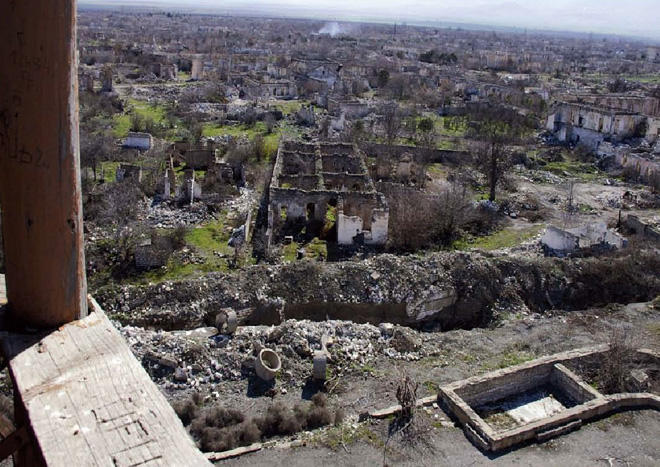Return of occupied territories surrounding Nagorno-Karabakh region quite possible - political analyst

By Rashid Shirinov
Although high expectations were placed on the last meeting of the Azerbaijani, Armenian FMs and the OSCE Minsk Group co-chairs in Krakow, no serious development was achieved during the talks. The only noteworthy point was the discussion over expanding the Office of Andrzej Kasprzyk, the Personal Representative of the OSCE Chairperson-in-Office on the Nagorno-Karabakh conflict.
The expansion is planned for the near future. However, experts argue about its benefits and influence on the process of the Nagorno-Karabakh conflict settlement.
“There will be no impact," Russian expert Georgy Fyodorov, President of the Aspect Center for Social and Political Studies, told Azernews on February 12. "OSCE actually acts as a monitoring service in the settlement of the Nagorno-Karabakh conflict and does not have a real influence on the settlement process.”
He added that the issue of Kasprzyk’s office expansion indirectly relates to the negotiation process and is more of organizational nature.
As for the negotiations themselves, it was agreed during the last visit of the MG co-chairs in the region that intensive negotiations will be held after the presidential elections in Armenia and Azerbaijan in March and April respectively.
“We should not expect any major progress in the settlement of the conflict during the elections, since any concessions will allow some forces within Azerbaijan and Armenia to play against candidates from the authorities,” Fyodorov noted in this regard.
Russian political analyst and expert on international issues Evgeny Mikhailov also believes that Kasprzyk's office expansion will not lead to a serious intensification in the settlement process.
“This is not so much an important step, but rather an additional political decision of the interested parties to create the appearance of a desire to alleviate the tension,” the expert said. Mikhailov noted that it is necessary to find some other tools that could lead to a real change in the situation on the frontline.
The expert added that after the presidential elections in Azerbaijan and Armenia, the political conjuncture may change both for the better and for the worse.
“I expect a sharp increase in pressure on Armenia from its main security guarantor Russia with a view to the possible returning of the occupied regions in the buffer zone to Azerbaijan,” the expert added.
He said the return of these occupied territories surrounding the Nagorno-Karabakh region is quite possible in the near future, since this issue was recently discussed in a positive manner but then was suspended.
“For Armenia, this step would not become a kind of defeat in the negotiation process, since these territories have never been disputed regarding their historical belonging. After that, it will be possible to work towards the return of Nagorno-Karabakh itself to Azerbaijan,” Mikhailov concluded.
This scenario is described in the Madrid Principles proposed to Azerbaijan and Armenia by the OSCE Minsk Group back in 2007. The principles stipulate a gradual settlement of the Nagorno-Karabakh conflict. In particular, they envisage the withdrawal of Armenian troops from the occupied areas adjacent to the Nagorno-Karabakh region of Azerbaijan, provision of an interim status for the region and future determination of its final legal status. Moreover, all internally displaced persons and refugees, who account for more than a million of Azerbaijan’s population, should return to their former places of residence, according to the Madrid Principles.
---
Rashid Shirinov is AzerNews’ staff journalist, follow him on Twitter: @RashidShirinov
Follow us on Twitter @AzerNewsAz
Here we are to serve you with news right now. It does not cost much, but worth your attention.
Choose to support open, independent, quality journalism and subscribe on a monthly basis.
By subscribing to our online newspaper, you can have full digital access to all news, analysis, and much more.
You can also follow AzerNEWS on Twitter @AzerNewsAz or Facebook @AzerNewsNewspaper
Thank you!
